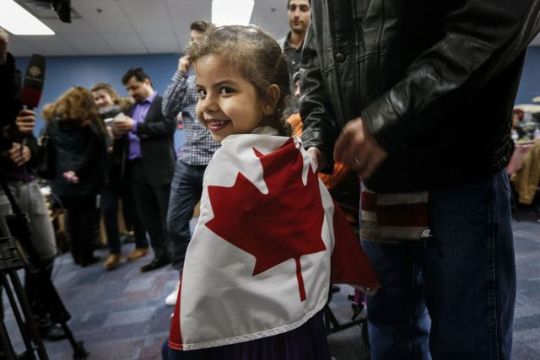#Azeezah
Text
Outfit of the Day by Paola Moretti
Outfit by Paola Moretti
#outfit #ootd #wwt #fashionstyle #outfitoftheday #royalfamily #camillaparker #queencamilla #zimmermann #altuzarra #valentino #guttha #chopard #misho #missoma #dkny #lattafa #iho #paolamoretti #perfettamentechic
Pantalone: Zimmermann
Maglione: Altuzarra
Scarpe: Valentino
Cappotto: Guttha
Borsa: Chopard
Orecchini: Misho
Anello: Missoma
Orologio: DKNY
Profumo: Azeezah by Lattafa
Fashion Blogger: Paola Moretti
Instagram: paolamorettiiho

View On WordPress
#Altuzarra#Azeezah#Azeezah by Lattafa#Camilla Parker#Camilla Parker Bowles#Chopard#DKNY#Donna Karan#Donna Karan New York#Guttha#Iho#Lattafa#Misho#Missoma#ootd#Outfit#Outfit of the Day#Outfit of the Day by Paola Moretti#Paola Moretti#paolamorettiiho#Perfettamente Chic#Queen#Queen Camilla#Royal family#UK#Valentino#wwt#Zimmermann
0 notes
Text
Paper detailing the similarities and partnership between Canada and the Israeli state. Today is Nakba day and there's marches and demonstrations all over world
122 notes
·
View notes
Photo

#Throwback #FirstEdition #QueensOfAfrica #Azeezah #BlackDoll
2 notes
·
View notes
Text
"Sevgi" için: hayır amaçlı sömürgecilik, faşizm ve soykırım
“Sevgi” için: hayır amaçlı sömürgecilik, faşizm ve soykırım
“Sevgi” için: hayır amaçlı sömürgecilik, faşizm ve soykırım
Hindistan ve ABD’den İsrail ve Myanmar’a kadar, “kar amacı gütmeyen sanayi kompleksi” köklü tahakküm yapılarını güçlendirmeye hizmet ediyor.
Azeezah Kanji
İsrail Yahudi Ulusal Fonu, “hayır kurumu” adına Batı Şeria’daki Filistin topraklarını sömürge yerleşimleri için satın alıyor ve buna “çevrecilik” diyor; aşırı sağcı Hindutva milliyetçi…

View On WordPress
0 notes
Text
Assange contra la violencia del 'humanitarismo' imperial
Assange contra la violencia del ‘humanitarismo’ imperial
Azeezah Kanji
En la decisión del tribunal del Reino Unido que libró al fundador de WikiLeaks, Julian Assange, de la extradición a Estados Unidos (por ahora, pendiente de apelación), la relación íntimamente simbiótica entre el humanitarismo y la violencia fue evidente una vez más.
La jueza Vanessa Baraitser dictaminó que sería “opresivo” extraditar a Assange, pero no por la injusticia de la…

View On WordPress
0 notes
Text
Women’s Education in Saudi Arabia (Brittney Reed)
The fight for education reform has been an ongoing battle in Saudi Arabia. Restrictions are placed on women in an attempt to upkeep the traditional values and norms of Saudi Arabian society, and therefore has been a cause and effect of segregation based on gender in political, economic, educational, and labor force environments. This blog post is for the purpose of analyzing my group's selected topic of Saudi Arabian women, and more specifically their role in the education system.
Until 1956, women in Saudi Arabia were not allowed to be educated (Alsuwaida 2016). Once the education system for girls began to develop, it offered free schooling with imposed limitations for the purpose of conserving traditional Wahabi Saudi society and culture. Segregation of the sexes throughout the education system was the main way this was done.
In the article, “Female Education in Saudi Arabia and the Reproduction of Gender Division,” (El-Sanabary 1994) the author explains the division of learning in the Saudi Arabian education system as an intentionally instituted structure for means of cultural conservation and social control. All schools are segregated by sex and offer gender specific curriculum that differentiates at various education levels and emphasizes women’s domestic function (El‐Sanabary 1994).
The education system treats the sexes differently due to their different societal expectations (Baki 2004). Male and female curriculum differ by content as well as development. Course material is usually much less extensive and minimally developed in comparison to males course content (Alsuwaida 2016). Hatoon A. Alfassi, one of the most outspoken academics on the role of women in society, and a professor of women’s history at King Saud University, in Riyadh, stated “we cover less material, we read fewer texts. And I get the impression that things are being dumbed down for us because we are women.” (Mills 2009).
In Saudi Arabian society and culture, a woman’s primary role is to be a nurturing housewife and mother and the purpose of education is to prepare and equip them with the necessary set of skills to be just that (Rajkhan 2014). Even when the ability to attend school is available for women, they are not guaranteed to get a job after graduating due to multiple limitations. The Saudi education system limits women’s education and future job opportunities by restricting women’s entry into certain fields of study, and their access to certain jobs (Baki 2004). Even when having access and aspiring to a career in a nontraditional field, women will most likely be subjected to discrimination within the job or even prior to that during the application process (Baki 2004). Mobility has also been used as a societal control and restriction on women's education. Women in Saudi Arabia do not have easy access to transportation and would need to have a chauffeur or relative drive her to and from campus (Baki 2004). Family's lack of support or inability to do this leads to many Saudi women being unable to pursue education.
Saudi educational reform is moving at a snail's pace though it has gained some momentum in recent years. King Abdullah bin Abdul Aziz has effectively halted the restrictive attitude of Saudi society, and has initiated some crucial changes for the progression of Saudi women’s education opportunities. He has adopted policies that encourage women to work towards achieving employment in the industrial fields similar to those of men and has established 24 public universities, 8 private universities, and a total of 494 colleges in 76 cities within Saudi Arabia. In addition he has developed the King Abdullah Sponsorship Program (KASP), launched in 2005, which is available to all Saudi students, regardless of gender, and enables them to travel overseas for higher education opportunities and experiences (Alsuwaida 2016).
Although female employment and education rates have increased significantly in recent years, there is still a long way to go for education reform in Saudi Arabia. Women''s education is still considered of secondary importance compared to men's and is still governed by restrictive traditional attitudes (Al-Manea 2020). The education system needs to be reexamined as gender-segregation and many other limitations are restricting women’s educational and employment opportunities. Without democratic politics, Saudi Arabia has always offered limited space for communication and collaboration and lacks a sense of community making education reform a hard fought battle (Alsuwaida 2016). Today, Saudi Arabian women are relentlessly pursuing education at a similar rate to men; however, far fewer women than men enter graduate programs, and the employment rate among Saudi women is extremely low (Allahmorad and Zreik 2020).
Societal and government pressures, restrictions, and institutionalized norms are limiting women from pursuing education and furthermore entering the labor market, therefore hindering the potential of the entire Saudi economy (Rajkhan 2014). There is a fault in Saudi Arabia in which biological difference results in social inequality through the sociocultural construction of traditional gender roles (Alsuwaida 2016). By limiting women's access to the labor market through restrictions on certain areas of study and on access to certain jobs, education is not preparing Saudi women, or men, for the global economy and is once again only helping to preserve the socially accepted status quo (Baki 2004). Saudi society's avoidance of change and inability to stray from traditional gender norms has not only hindered women’s pursuit of education and investment in their future, but has also limited men and the entire Saudi economy.
Works Cited
Allahmorad, Sidiqa, and Sahel Zreik. “Education in Saudi Arabia.” WENR, World Education Services (WES), 31 Aug. 2020, wenr.wes.org/2020/04/education-in-saudi-arabia.
Al-Manea, Azeezah A. "HISTORICAL AND CONTEMPORARY POLICIES OF WOMEN'S EDUCATION IN SAUDI ARABIA." (1985): 0353-0353.
Alsuwaida, Nouf. "Women's Education in Saudi Arabia." Journal of International Education Research 12.4 (2016): 111-118.
Baki, Roula. "Gender-segregated education in Saudi Arabia: Its impact on social norms and the Saudi labor market." education policy analysis archives 12.28 (2004): n28.
El‐Sanabary, N. A. G. A. T. "Female education in Saudi Arabia and the reproduction of gender division." Gender and Education 6.2 (1994): 141-150.
Mills, Andrew. “Reforms to Women's Education Make Slow Progress in Saudi Arabia.” Chronicle Of Higher Education, CHE, 3 Aug. 2009, www.chronicle.com/article/reforms-to-womens-education-make-slow-progress-in-saudi-arabia/?bc_nonce=3xexr2op847f4c1hhm903l.
Rajkhan, Safaa. "Women in Saudi Arabia: Status, rights, and limitations." (2014).
0 notes
Text
Fun springtime shirt patterns for fashion dolls (free PDF) @ ChellyWood.com #amsewing #dollclothes
Fun springtime shirt patterns for fashion dolls (free PDF) @ ChellyWood.com #amsewing #dollclothes

Today’s free printable PDF sewing pattern is marked with an explanation that the shorts pattern and capri patterns are still incomplete. I’ve been having a little trouble getting these two “bottoms” patterns to fit my Queens of Africa dolls right because, as you might have noticed in last Tuesday’s post, Azeezah’s hips are a little wider than other, more well-known fashion dolls.
But you’re safe…
View On WordPress
0 notes
Photo

Azeezah - Queens of Africa doll Housa from Northern Nigeria fico solutions #fashiondoll #fashiondolls #fashiondollcollector #queensofafrica #queensofafricadolls https://www.instagram.com/p/B1jxBMFlYz6/?igshid=f4ctndhpfcg7
0 notes
Photo

#Azeezah first edition #QueensOfAfrica #BlackDoll. #CNN #MyFreedomDay #March14 #2017 cc: @cnn @cnnafrica @cnni
0 notes
Text
Sources and acknowledgments

In addition to the people quoted in this special report, the author would like to thank the following:
Nabé Alexandrian, Werner Antweiler, Louise Arbour, Vivien Azer, Mike Babins, Stewart Beck, Daniel Béland, Maxime Bernier, Hilary Black, Ian Brodie, Peter Brown, Ailish Campbell, Janice Charette, George Chow, Robert Cookson, Philip Cross, Carlo Dade, Dwight Duncan, Lesley Emory, Martha Hall Findlay, Jock Finlayson, Marc Gold, Andrew Griffith, Jerome Hass, Keith Head, Lawrence Herman, Peter Hogg, Lawson Hunter, Ahmed Hussen, Dominic Ippolito, Jack Jedwab, Richard Johnston, Stuart Johnston, Azeezah Kanji, Khadijah Kanji, Samira Kanji, Dan Kelly, Henry Kim, Hayden King, Jeremy Kronick, Pierre Lavalée, Patrick Leblond, Parisa Mahboubi, Ted Mallett, Bharat Masrani, George McBride, Kevin Milligan, Jeff More, Yasir Naqvi, David Negrin, Nancy Olewiler, Santa Ono, Bruce Ralston, Casey Ratt, Jeff Reeves, Danielle Rosellison, Daniel Schwanen, Sonia Sennik, Ian Scott, Wayne Sparrow, Dan Sutton, Catherine Tait, Niels Veldhuis, Jennifer Winter, Lorna Wright, Kathleen Wynne, Rosalie Wyonch
Get our daily newsletter
Upgrade your inbox and get our Daily Dispatch and Editor's Picks.
Written sources:
https://irpp.org/research-studies/facing-facts-reconsidering-business-innovation-policy-canada/
https://www.cdhowe.org/sites/default/files/attachments/research_papers/mixed/Commentary_508.pdf
https://ppforum.ca/wp-content/uploads/2019/04/PPF-NewNorthStar-Summary-EN4.pdf
http://www.ekospolitics.com/index.php/2019/04/increased-polarization-on-attitudes-to-immigration-reshaping-the-political-landscape-in-canada/
https://www.oecd.org/eco/surveys/Canada-2018-economic-survey-key-policy-insights.pdf
https://www.utpjournals.press/doi/full/10.3138/cpp.2016-056
https://www.chathamhouse.org/sites/default/files/publications/research/2019-06-18-MiddlePowers.pdf
https://ift.tt/2K5bH5o
0 notes
Photo

We should be proud to accept refugees, because seeking asylum is a basic human right! Photo credited to Azeezah Kanji of The Toronto Star.
0 notes

